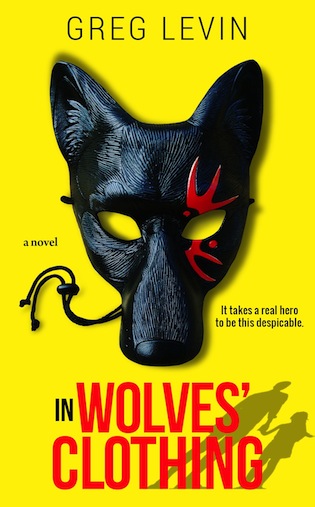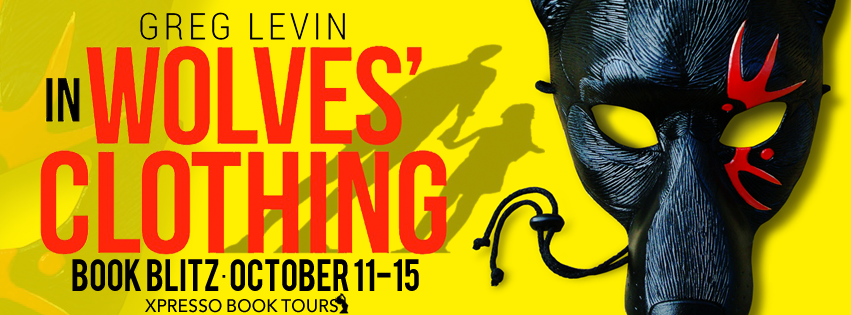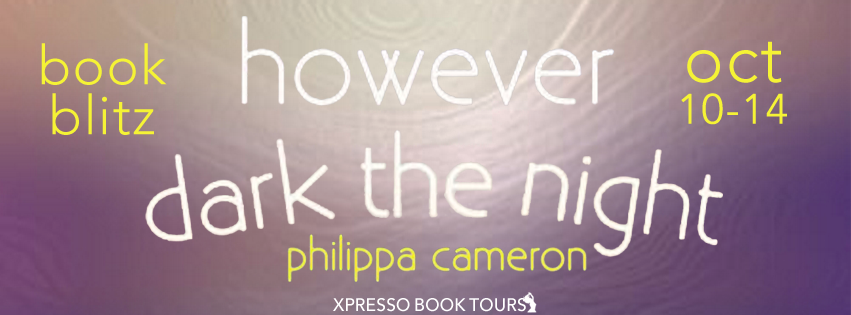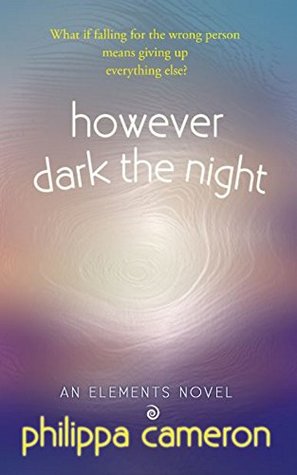 In Wolves’ Clothing
Greg Levin
In Wolves’ Clothing
Greg Levin
Publication date: October 11th 2017
Genres: Adult, Psychological Thriller
Zero Slade is not a bad guy—he merely plays one when saving children’s lives.
During his seven years on a team fighting child sex trafficking, Zero’s become quite good at schmoozing with pimps, getting handcuffed by cops and pretending not to care about the Lost Girls he liberates. But the dangerous sting operations are starting to take their toll on his marriage and sanity. His affinity for prescription painkillers isn’t exactly helping matters.
When the youngest girl the team has ever rescued gets abducted from a safe house in Cambodia, Zero decides to risk everything to find her. His only shot is to go rogue—and sink deeper into the bowels of the trafficking world than he’s ever sunk.
It’s the biggest mission of his life. Trouble is, it’s almost certain death.
—
“A truly original and enthralling novel. Levin’s blazing prose and acerbic wit capture the madness—and the humanity—of working undercover in the darkest corners.”
Radd Berrett, former Jump Team member, Operation Underground Railroad
—
EXCERPT:
I can’t remember if I took an oxy during the flight, so I eat two. They pair nicely with the scotch.
It’s good to be home.
I should be upstairs sleeping, especially since I didn’t catch a single wink on the flight from Guadalajara. But there’s something I have to finish first.
An eight-letter word for gradually losing one’s edge.
Slipping.
I fill in each box of 27 Down with my black pen and take another sip of scotch. It’s times like these I turn into God. The crossword squares fill up by themselves in a secret blurry code. A few of the answers might even be correct.
The black pleather couch makes love to me as I solve 32 Across.
A four-letter word for spouse.
Neda.
She’s leaning on the banister, wearing a white T-shirt and gray sweatpants that might have fit me when I was ten. Her eyes, almond-shaped during waking hours, are half open.
“You’re home?” she says, pre-dawn gravel in her voice.
“Hi, baby,” I say while trying to conceal the nearly empty lowball glass in my hand. “Sorry to wake you. I’ll be up in a sec.”
Neda yawns and combs her hand through a shining cascade of black hair. “What time d’you get in?”
I scratch my shaved dome, feeling the perspiration forming, and say, “Uh, a little after one maybe.”
Neda opens her eyes the rest of the way. “You’ve been here for nearly two hours? Why didn’t—”
“Baby, I just needed to unwind a bit before bed.”
Neda’s eyes open wider than the manual recommends. “Why must unwinding always involve single malt and a crossword?” she asks. “You know, some men unwind by spooning their beautiful wife. Especially when they haven’t seen her in four days.”
I ponder the answer to 36 Across.
“Zero!” Neda shouts.
The sound knocks the pen from my fingers, and I go, “I didn’t want to wake you.”
“And look how that worked out for you,” says Neda. “At least if you’d come up when you got home you wouldn’t be getting yelled at.”
I tell her not to be mad, then get up from the couch as gracefully as a man two drinks and twenty milligrams in can. “I knew if I woke you right when I got home, you’d want to talk about the mission.”
I realize this is not what God would say. I can tell by Neda’s face.

Author Bio:
Greg Levin is an award-winning author of contemporary fiction with a dark comedic tinge. He’s gone from being read merely by immediate family and friends to being read also by extended family and Facebook acquaintances.
Greg’s novel The Exit Man was optioned by Showtime for development into a TV series, and won a 2015 Independent Publisher Book Award (a.k.a., an “IPPY”). He earned a second IPPY with his next novel, Sick to Death, which Craig Clevenger (The Contortionist’s Handbook) called “a tour de force dark comedy.” Greg’s upcoming book, In Wolves’ Clothing, is due out October 2017 and is his most dangerous work yet. He wrote much of it during a ten-week-long workshop led by the great Chuck Palahniuk (author of Fight Club and lots of other books Greg sleeps with at night).
Greg resides with his wife, daughter and two cats in Austin, Texas. He is currently wanted by local authorities for refusing to say “y’all” or do the two-step.
Q &A with Greg Levin
You write about issues that most authors would tiptoe around. Care to comment on that?
Sure. I do it because there are already so many novels about vampires, zombies and wizards, and I don’t want to have to compete with them. Besides, it’s exciting to explore subversive and controversial topics. To go underground and get a little dirt on my pajamas while I’m sitting in the house writing. Also, I’ve never been big on tiptoeing. Sometimes it’s better to charge straight toward a dark or dangerous topic and see who flinches first.
And where does your dark sense of humor come from?
I guess you could say it’s a survival tactic. I don't use dark humor to offend—I use it to defend. Humor is a magnificent weapon, one that, instead of destroying, keeps us from being destroyed. Nietzsche said, “We have art in order to not die of the truth.” I feel humor serves the same purpose. In fact, humor—when deftly wielded—is art.
What motivates you to write?
The desire to remain sane. Kafka was spot-on when he famously said, “A non-writing writer is a monster courting insanity.” I can sometimes make it two or three days without working on a novel, blog post or grocery list, but after that I absolutely MUST write. Even when I’m on vacation in paradise with my beautiful wife, I need to scratch out a page here and there to keep the crazy away. Too much sun, surf and relaxation terrifies me.
What are your biggest writing distractions?
My beautiful wife’s desire to go on vacations in paradise. That, and any kind of noise other than the clicks of my own keyboard and synapses. I wear silicone earplugs whenever writing to avoid being pulled out of my fictional world by such annoying sounds as my wife saying good morning, my teenage daughter sneaking back into the house, or my cats begging me to feed them. I know this makes me seem a little selfish and mean, but in my defense, I’m not a very good person.
How has your upbringing influenced your writing?
I had a pretty happy childhood, which normally dooms a writing career. But I managed to overcome all the unconditional love and support and still become a tortured writer of dark and twisted tales. That’s not to say my upbringing didn’t help me at all. I was a very talkative kid, and when all my family and friends finally got sick and tired of listening to me, I turned to the written word. Nobody can shut you up when you're alone in a room typing ... nobody except my cat, Dingo, who loves to sit on my laptop right when the prose is flowing.
What would you say is your greatest strength as a writer?
At the risk of sounding a tad redundant, I’d say it’s my ability to bring levity and humor to dark topics while simultaneously revealing the heart and humanity of my main characters. I love getting readers to root for a well-meaning sociopath or serial killer or just plain loser, and eliciting laughter and tears in the process.
As a reader, what is you favorite book quote?
I have to choose just one? That’s like asking me to choose a favorite snowflake or Rocky film. Hmmm, I think I’ll have to go with the following staggeringly good one from Denis Johnson—an amazing writer we lost earlier this year:
“Talk into my bullet hole. Tell me I'm fine.” (From Jesus’ Son.)
Who is your favorite book hero and/or villain, and why?
I have two favorites, but (spoiler alert) they are really the same person. The first is the unnamed protagonist of Fight Club, and the second is Tyler Durden of Fight Club. I could go on for days explaining why they/he are/is my favorite hero/villain, but I must respect the first rule of Fight Club and not talk about Fight Club. I’ve already said too much.
What book has influenced you the most as a writer?
This may shock you, but it’s Fight Club. It’s the book that really got me into contemporary transgressive fiction. While it’s not my favorite book by Chuck Palahniuk, it is the one that awoke in me a fresh new way of writing—dangerous prose with a minimalist bent. Prose that is dark and startling, but also peppered with pathos and humor.
You know, this would be the perfect time for me to share a humble-brag. I was fortunate enough to be one of a dozen writers Chuck Palahniuk selected to participate in his inaugural “Writing Wrong” workshop in Portland this past spring. Every Monday for ten weeks I got to sit in a room with him, read sections of In Wolves’ Clothing (which was a work in progress at the time), and have him tell me everything I had to fix to make the book as good as I had deluded myself into thinking it already was. The whole experience was extremely rewarding, and humbling. More importantly, it gave me the ability to name-drop Chuck Palahniuk during interviews for the rest of my life.
Tell us a little about In Wolves’ Clothing.
It’s about a guy named Zero Slade who travels the world posing as a pedophile to help rescue victims of child sex trafficking. I’m not kidding, and the book is no joke. There are men and women in real life who carry out the kind of elaborate sting operations that Zero, along with his cohorts, carry out in the book.
In Wolves’ Clothing is definitely not a dark comedy like my previous two novels, however, there is an ample amount of subversive humor and comic relief in the story. But let me assure you, not once do I (or my characters) make light of the horrors of child sex trafficking. The humor in the book never comes at the expense of the Lost Girls. It comes from how my protagonist and his fellow undercover “pedophiles” cope with the harrowing missions—and the absurd role they must play in order for those missions to succeed.
So, while I geared the book to enthrall and entertain readers, I also I aimed to do right by all the victims of human trafficking—and all the women and men who’ve dedicated their lives to liberating and caring for those victims.













